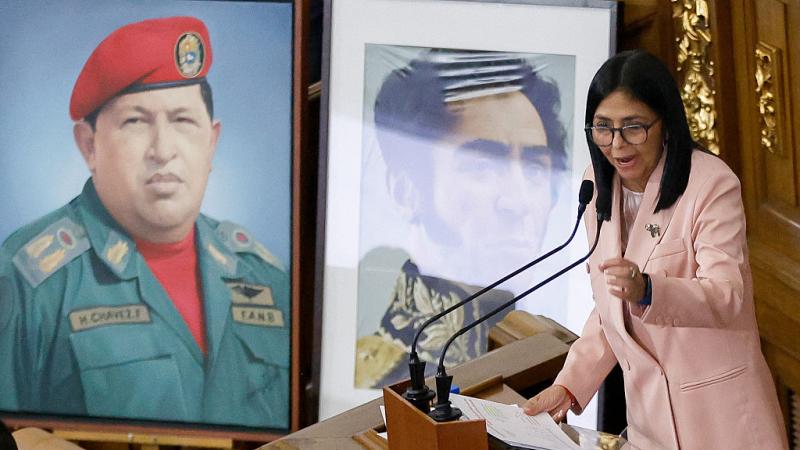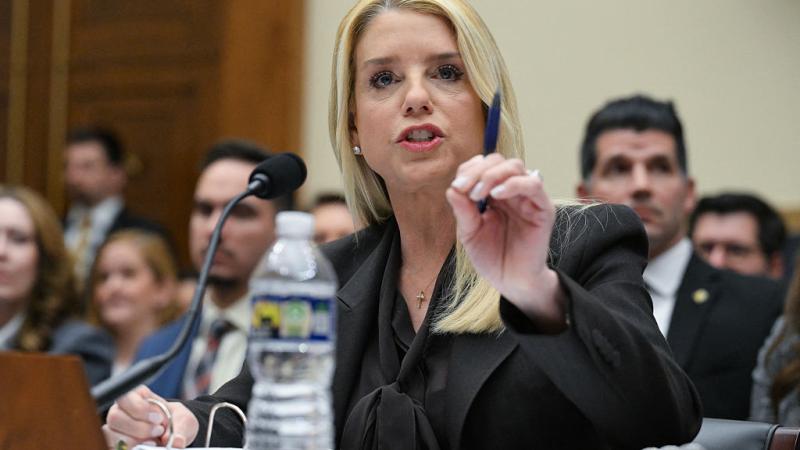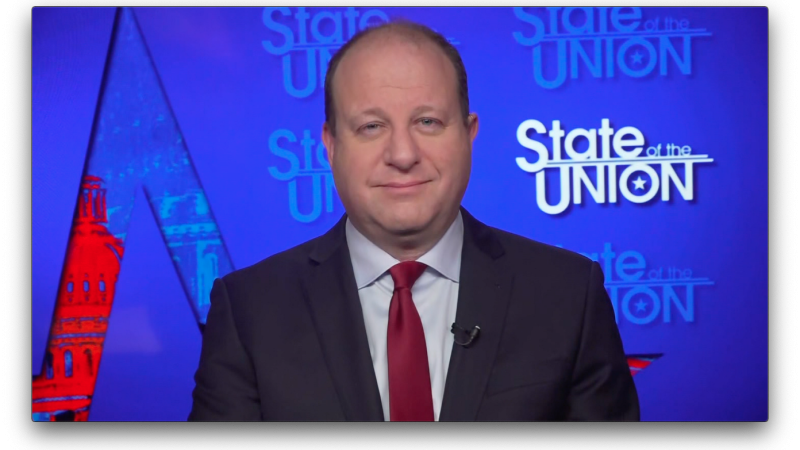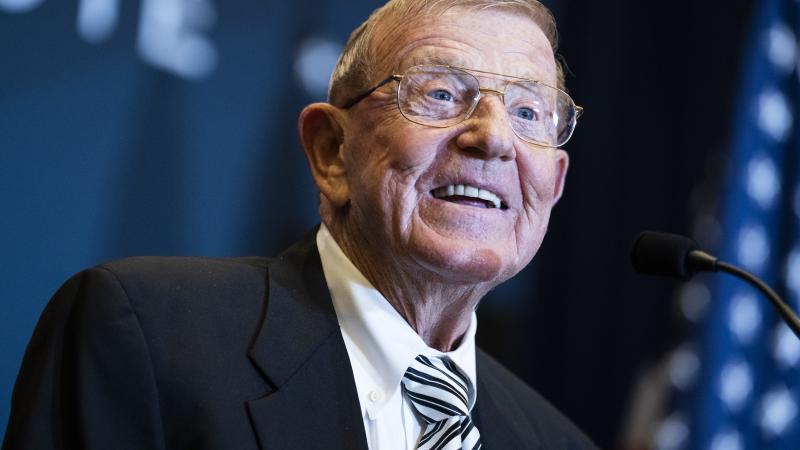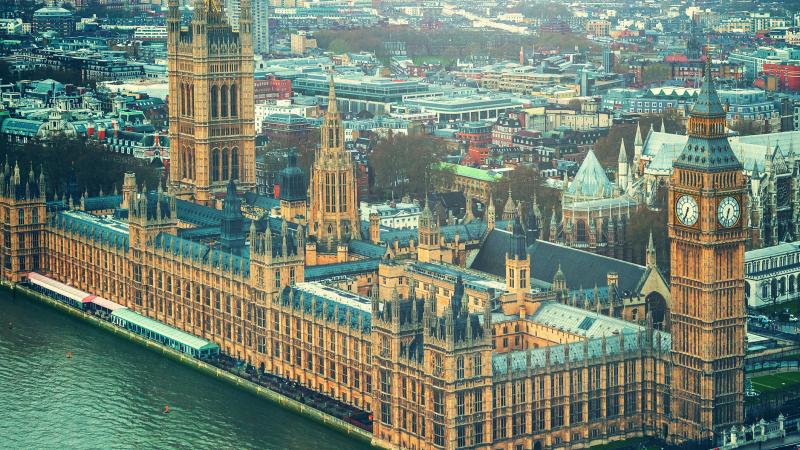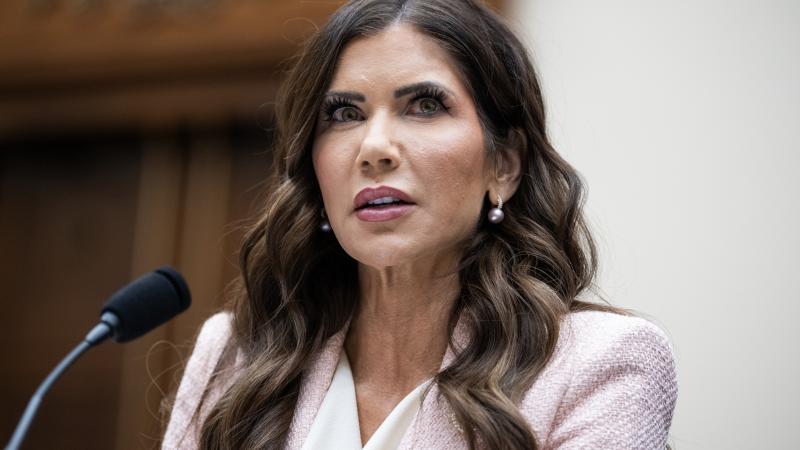Trump touches down in Saudi Arabia while Israel nervous about other separate deals
Trump is reportedly frustrated with Israeli Prime Minister Benjamin Netanyahu to the point of cutting Israel out of negotiations with some of their mutual adversaries and concluding separate agreements to safeguard U.S. interests on his own in recent weeks. Trump's direct talks with Hamas secured the release of the last known American to be held in Gaza on Monday.
President Donald Trump is in Riyadh on Tuesday for diplomatic talks with the Kingdom of Saudi Arabia over trade deals and the ongoing Israel-Gaza conflict. Speculation abounds that the visit could represent a pivotal moment, as tensions heighten between Washington and Jerusalem over Middle East policy.
Trump is reportedly frustrated with Israeli Prime Minister Benjamin Netanyahu to the point of cutting Israel out of negotiations with some of their mutual adversaries and concluding separate agreements to safeguard U.S. interests unilaterally in recent weeks. The president has long expressed support for Israel, including in his first term formally recognizing Jerusalem as the capital of Israel and moving the American embassy from Tel Aviv to Jerusalem.
In recent weeks, he has veered from the longstanding practice of working in tandem with that nation and his officials have prompted concerns from Jerusalem as separate efforts become more frequent.
Adding to the tensions, Defense Secretary Pete Hegseth recently canceled his trip to Israel in what was colored as a mere last-minute change of priorities, though it came on the heels of multiple episodes, including high-profile personnel shake-ups that all belie a worsening of Israeli-American relations. To be sure, U.S. Ambassador to Israel Mike Huckabee has categorically denied any rift between Netanyahu and Trump.
“It’s reckless & irresponsible for [the] press to allege that [Trump] and [Netanyahu] are not getting along. Bibi has spent more time with [Trump] than I have in [the] past 3 months & I’m his ambassador! The relationship between US & Israel remains STRONG!” Huckabee wrote on X.
Netanyahu's public statements
Netanyahu on Sunday stated that he had an “excellent” relationship with Trump and downplayed reports of a growing rift, highlighting that neither he nor Trump had publicly taken aim at one another.
“What can I say — it’s not Trump saying it and it’s not me saying it,” he said, claiming that the domestic Israeli media was working to fabricate a split with Trump to undermine him.
“These spins — most of them are born here [in Israel.] They’re born in a certain media outlet that’s trying to promote a certain candidate. And in order to promote him, they need to say: ‘Trump and Netanyahu are no longer.’”
The Israeli government has acknowledged the prospect of a diplomatic rift, with Netanyahu himself warning Israeli lawmakers that it may need to recalibrate its defense policy to account for less reliable American support.
"I think we will need to wean ourselves off American military aid," Netanyahu told the Knesset Foreign Affairs and Defense Committee on Sunday, according to Anadolu Agency, a Turkish government-owned news agency.
Hostage freed in separate deal made over the weekend
After Trump's separate talks with Hamas, they released on Monday its last known living American hostage after he was held for more than 580 days in captivity in the Gaza Strip. Edan Alexander, a 21-year-old dual U.S.-Israeli citizen, was received by a specialized Israel Defense Forces unit and was brought to an initial reception facility in Re’im, where he was scheduled to undergo preliminary medical and psychological evaluation by Israel Defense Forces (IDF) Medical Corps personnel," according to Fox News.
"This is a very emotional moment -- Edan Alexander has returned home. We embrace him, and we embrace his family," Israeli Prime Minister Benjamin Netanyahu said in a statement. "This was achieved thanks to our military pressure and the diplomatic pressure applied by President Trump. That combination is a winning formula."
Hamas purportedly released Alexander as a gesture to Trump and as part of a broader effort to secure humanitarian relief for Gaza and a ceasefire of hostilities.
Prior to that announcement, The Jerusalem Post and Reuters cited fears from Israeli officials that Hamas would reach such an agreement with the Americans without any Israeli input. Amid the concerns were fears that Hamas would use a hostage deal to secure support for a ceasefire from Washington and to prevent a major Israeli ground offensive in the region.
The Times of Israel reported in March that Netanyahu was working to prevent the Americans from securing the release of only their hostages, which he adamantly denied. Alexander was the last known living American hostage in Gaza and his release marked the end of a significant American stake in the conflict.
Saudi talks fuel rumors of U.S. recognizing Palestine
Trump himself is in Riyadh on Tuesday as part of a broader trip to the region that will also see him visit the United Arab Emirates and Qatar. He reportedly hopes to make progress on trade deals and Gaza ceasefire negotiations.
A string of reports emerged over the weekend saying that the Trump administration was preparing to recognize Palestine as a state in some form, as do other nations. Roughly 150 countries recognize a Palestinian state, though their interpretation of its borders and legitimate government vary.
Prior to the trip, an unnamed Arab diplomatic source told The Media Line that "President Donald Trump will issue a declaration regarding the State of Palestine and American recognition of it, and that there will be the establishment of a Palestinian state without the presence of Hamas." Such a decision, the source said, "will change the balance of power in the Middle East, and more countries will join the Abraham Accords."
Israeli Foreign Minister Gideon Saar appeared to take such reporting seriously, saying that "[t]here have been talks about an initiative to unilaterally recognize a Palestinian state,” Agence France Presse reported. “[A]ny attempt to do so unilaterally will only harm future prospects for a bilateral process and will push us for unilateral actions in response.”
Others, however, including former diplomat Ahmed Al-Ibrahim, were skeptical, highlighting the absence of the Egyptian and Jordanian leaders. “They are the two countries closest to Palestine, and it would be important for them to be present at any event like this,” he added.
The talks are more likely to address Saudi Arabia’s plans for a civil nuclear program and its insistence on enriching uranium domestically. The nuclear issue has been one of the key points holding up the normalization of relations between Israel and the kingdom, alongside the Saudi demand that Israel commit to a Palestinian state. The U.S. had previously sought a normalization of ties between both nations as a condition for aiding the Saudis’ nuclear efforts.
But Trump has evidently dropped that goal, at least as part of negotiations with the country on the creation of a civil nuclear program. Whereas President Joe Biden’s administration had sought to advance ties between Riyadh and Jerusalem as part of a broader deal with the kingdom on defense and nuclear cultivation, Trump dropped that condition ahead of his trip, Reuters reported.
Independent U.S. deal made with Houthis
Trump also announced this week that he had reached a separate agreement with Yemen’s Houthi rebels to end their attacks on American vessels in the Red Sea after an intense bombing campaign by the U.S. and Israel led them to reach out.
"They just don't want to fight and we will honor that," Trump announced. "We will stop the bombings and they have capitulated. But more importantly, we will take their word. They say they will not be blowing up ships anymore."
The agreement between the United States and the Houthis does not include any provisions requiring that the Houthis stop their attacks on other nations, including Israel, an omission that has led a bipartisan group of lawmakers to warn Trump that it “sends the wrong message to both our allies and adversaries: that U.S. resolve is negotiable and that aggression against our allies will go unpunished by the United States,” according to Jewish Insider.
U.S. Ambassador to Israel Mike Huckabee, a strong supporter of that country, pushed back on such criticisms and told Israeli news outlets that “[t]he United States isn’t required to get permission from Israel to make some type of arrangement that would get the Houthis from firing on our ships.”
“There’s 700,000 Americans living in Israel. If the Houthis want to continue doing things to Israel and they hurt an American, then it becomes our business,” he added.
Hegseth postpones his solo trip to Israel, Waltz fired
Secretary of Defense Pete Hegseth had been set to visit Israel this week, but will instead accompany Trump on his Middle East trip. Initial reports stated that he had canceled the trip, though Chief Pentagon Spokesman Sean Parnell stated that “Secretary Hegseth did not cancel his trip to Israel. He was asked to join President Trump’s Middle East trip next week & is honored to do so. SECDEF very much looks forward to visiting our ally Israel soon.”
Neither Hegseth nor Trump are expected to meet with Netanyahu as part of this Middle East trip and Trump has suggested he may instead take a detour to Istanbul to participate in proposed Russia-Ukraine talks.
Trump recently fired Mike Waltz as his national security advisor and later tapped him for UN ambassador. Last week, however, the The Washington Post reported on his dealings with the Israeli government that appeared to highlight a substantive disagreement between Waltz and Trump over the direction of Iran talks.
Though Waltz faced considerable backlash over his accidental inclusion of a reporter on a Signal chat group for planning strikes on the Houthis, it may have been his dealings with Israeli Prime Minister Benjamin Netanyahu that proved the last straw. The Post reported that Waltz had appeared to engage in “intense coordination” with Netanyahu about the prospect of military action against Iran.
Waltz “wanted to take U.S. policy in a direction Trump wasn’t comfortable with because the U.S. hadn’t attempted a diplomatic solution,” the Post quoted one unnamed source as saying. Another unnamed Trump advisor opined to the outlet that “If Jim Baker was doing a side deal with the Saudis to subvert George H.W. Bush, you’d be fired. You can’t do that. You work for the president of your country, not the president of another country.”
The Facts Inside Our Reporter's Notebook
Links
- Huckabee wrote
- he said
- Netanyahu told
- according to Fox News
- cited fears from Israeli officials
- working to prevent
- A string of reports
- told The Media Line
- Reuters reported
- Agence France Presse reported
- Sean Parnell stated
- visit Saudi Arabia
- pursuing separate talks
- Trump announced
- Jewish Insider
- Israeli news outlets
- strong supporter
- Washington Post
